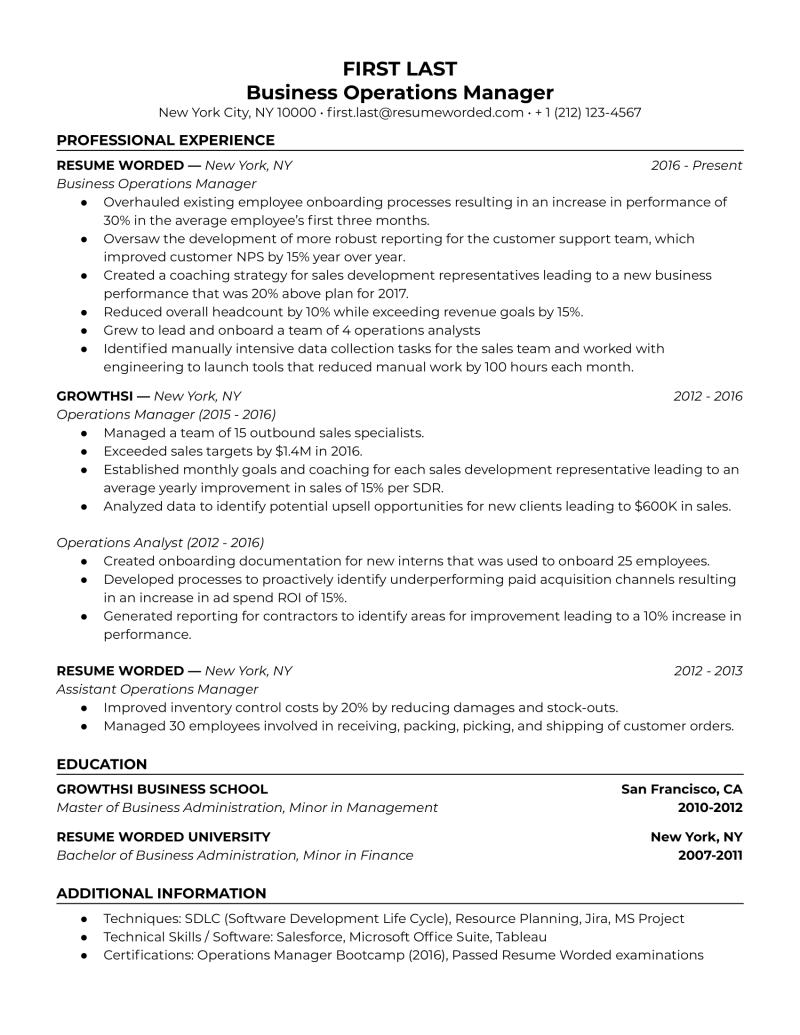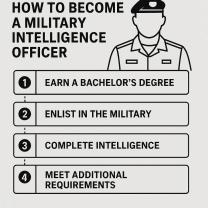How to become business operations manager?
Becoming a business operations manager typically requires a combination of education, relevant work experience, and skills development. Here's a general path to help you become a business operations manager:
1. Obtain the Necessary Education:
- Educational Background: Many business operations managers have at least a bachelor's degree in business administration, management, operations management, or a related field.
- Specialized Degrees: Some individuals pursue master's degrees (MBA) to enhance their business knowledge and leadership skills, although this is not always a requirement.
2. Gain Relevant Work Experience:
- Entry-Level Positions: Start with entry-level positions in areas such as operations, administration, or project management.
- Progressive Experience: Gain progressively responsible roles, such as team leader, supervisor, or junior manager, to develop a solid understanding of business operations.
3. Develop Key Skills:
- Leadership Skills: Business operations managers need strong leadership skills to guide and motivate teams.
- Analytical Skills: Analytical abilities are crucial for evaluating processes, identifying inefficiencies, and making data-driven decisions.
- Communication Skills: Effective communication is essential for conveying directives, collaborating with teams, and presenting findings to leadership.
- Problem-Solving Skills: Operations managers must be adept at identifying and solving complex problems to enhance efficiency.
- Organizational Skills: Strong organizational skills are necessary for managing multiple tasks, projects, and deadlines simultaneously.
4. Acquire Industry-Specific Knowledge:
- Industry Experience: Gain experience within the specific industry in which you aim to become an operations manager. Understanding industry-specific processes and challenges is valuable.
- Stay Informed: Keep abreast of industry trends, regulations, and best practices to stay relevant and effective.
5. Networking and Professional Development:
- Networking: Attend industry events, conferences, and networking functions to build relationships with professionals in your field.
- Professional Organizations: Join relevant professional organizations related to operations management, such as the Association for Operations Management (APICS) or the Institute for Operations Research and the Management Sciences (INFORMS).
6. Pursue Additional Certifications:
- Certifications: Consider obtaining relevant certifications to enhance your skills and credibility. Certifications such as Certified in Production and Inventory Management (CPIM) or Project Management Professional (PMP) can be beneficial.
- Continuous Learning: Stay committed to continuous learning to stay informed about the latest developments in business operations and management.
7. Demonstrate Leadership and Initiative:
- Take on Leadership Roles: Volunteer for leadership opportunities within your organization or community to showcase your leadership abilities.
- Initiative: Demonstrate initiative by proposing and implementing process improvements or efficiency measures in your current role.
8. Pursue Advanced Degrees (Optional):
- Master's Degree: While not always required, pursuing a master's degree, such as an MBA with a focus on operations management, can provide additional qualifications and open up more senior-level opportunities.
9. Build a Strong Resume:
- Highlight Achievements: Showcase your achievements, responsibilities, and relevant experiences on your resume.
- Tailor Your Resume: Tailor your resume to emphasize your skills and accomplishments related to operations management.
10. Job Search and Career Advancement:
- Search for Positions: Look for business operations manager positions that align with your skills and career goals.
- Career Advancement: Consider taking on progressively challenging roles, and seek opportunities for career advancement within your organization or through external job opportunities.
Remember that the specific requirements for becoming a business operations manager can vary depending on the industry, company, and region. It's essential to stay adaptable, continuously develop your skills, and remain proactive in seeking opportunities for growth and advancement in your career.
Navigating the Path to Business Operations Management: Education, Skills, and Strategies
The role of a business operations manager offers fascinating challenges and a rewarding impact on organizational success. So, how can you land this coveted position? Let's explore the educational paths, key skills, and industry considerations to navigate your journey.
1. Becoming a Business Operations Manager:
There's no single "must-have" path, but strong foundations in these areas will increase your chances:
- Education:
- Bachelor's degree: A bachelor's degree in business administration, management, operations management, or a related field provides a strong foundation in key concepts. Other relevant degrees like industrial engineering or supply chain management can also be valuable.
- Master's degree: While not always required, an MBA or a specialized master's in operations management can enhance your knowledge and competitiveness, especially for senior positions.
- Experience: Gaining relevant experience through internships, entry-level positions in operations, or other business functions is crucial. Look for opportunities in areas like logistics, inventory management, project management, or quality control.
- Professional certifications: While not always mandatory, earning certifications like Certified Supply Chain Professional (CSCP) or Certified Operations Production Manager (COPM) can demonstrate your expertise and commitment to the field.
2. Essential Skills and Attributes for Success:
- Analytical and problem-solving skills: Identifying operational inefficiencies and devising solutions is key.
- Organizational and planning skills: Effectively managing resources, projects, and deadlines is crucial.
- Communication and leadership skills: Building strong relationships with team members, stakeholders, and clients is essential.
- Technical skills: Proficiency in relevant software, data analysis tools, and project management technologies can be highly advantageous.
- Adaptability and resilience: Be prepared to navigate changing priorities, market dynamics, and unforeseen challenges.
3. Industry-Specific Requirements and Certifications:
While core skills and knowledge translate across industries, some sectors might have specific requirements:
- Manufacturing: Understanding production processes, lean manufacturing principles, and quality control standards may be crucial.
- Healthcare: Knowledge of healthcare regulations, medical equipment, and patient safety protocols might be required.
- Logistics and transportation: Expertise in supply chain management, transportation regulations, and warehouse operations will be valuable.
- Technology: Familiarity with IT infrastructure, data security, and project management methodologies within the tech sector is important.
Remember: Continuous learning and development are key to staying ahead in the dynamic world of business operations. Networking with experienced professionals, attending industry events, and keeping up with the latest trends can significantly enhance your career trajectory.
By combining the right education, relevant experience, essential skills, and a willingness to adapt, you can confidently navigate the path to becoming a successful business operations manager.
I hope this comprehensive information helps you chart your journey!












